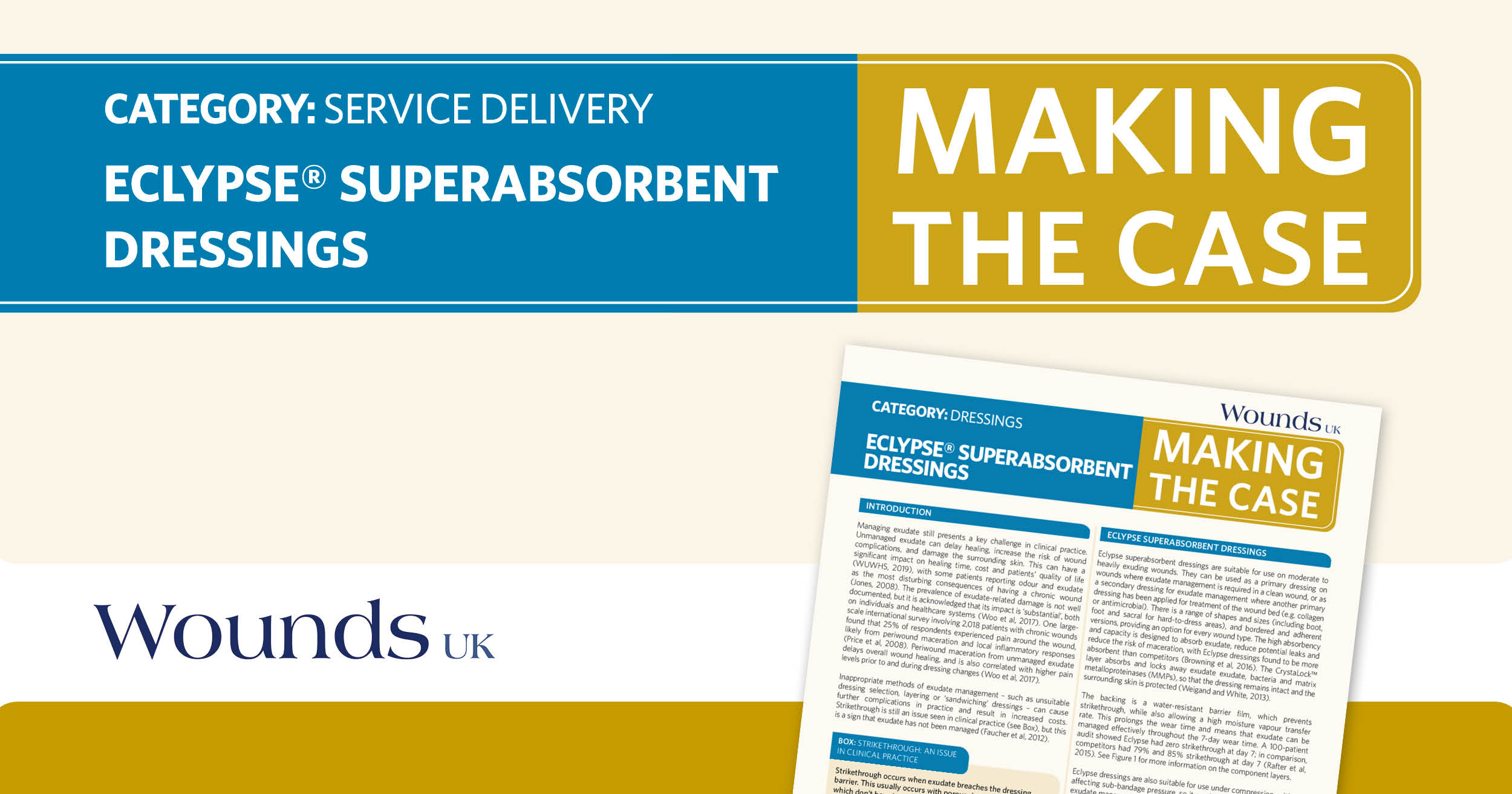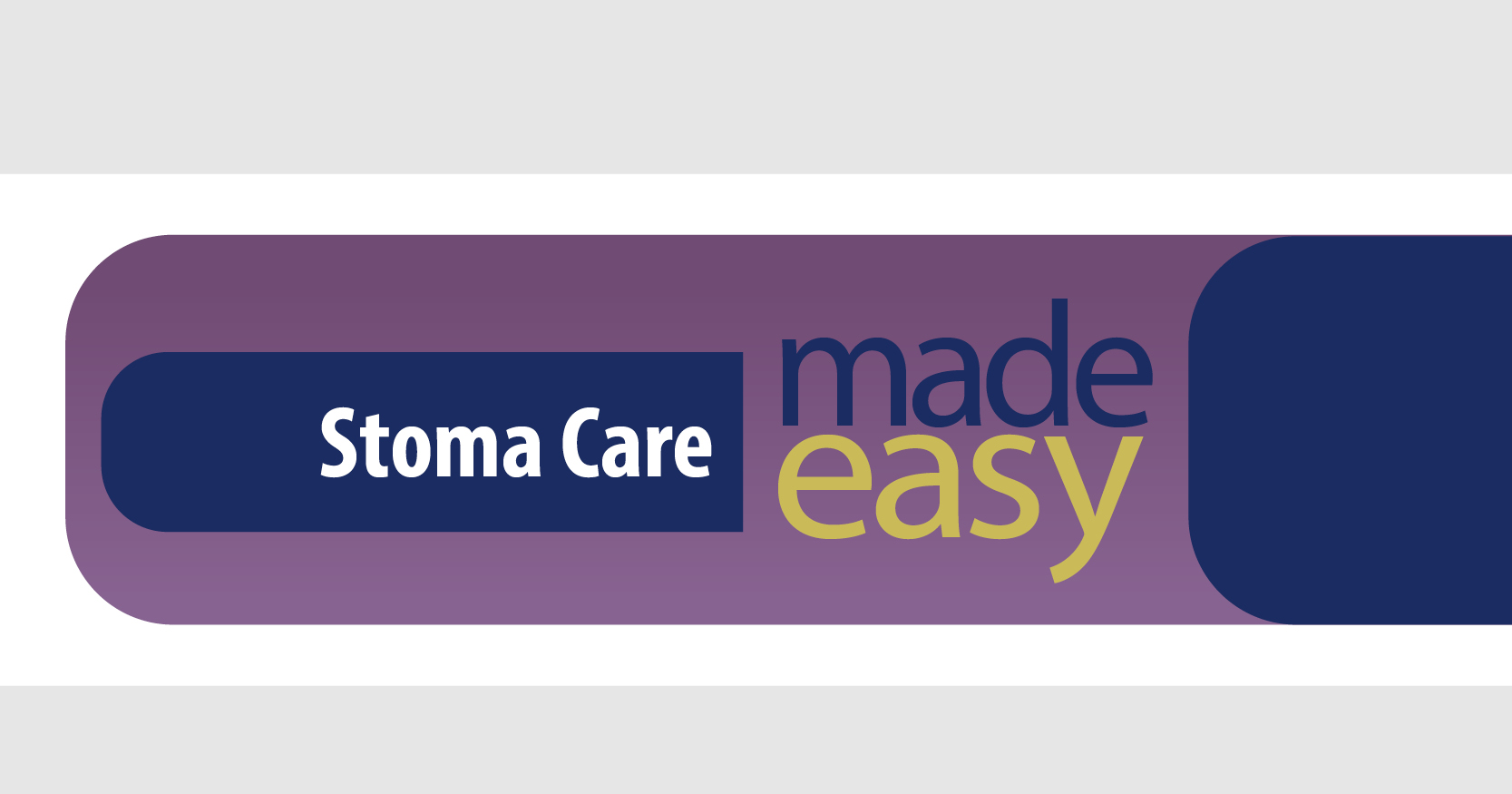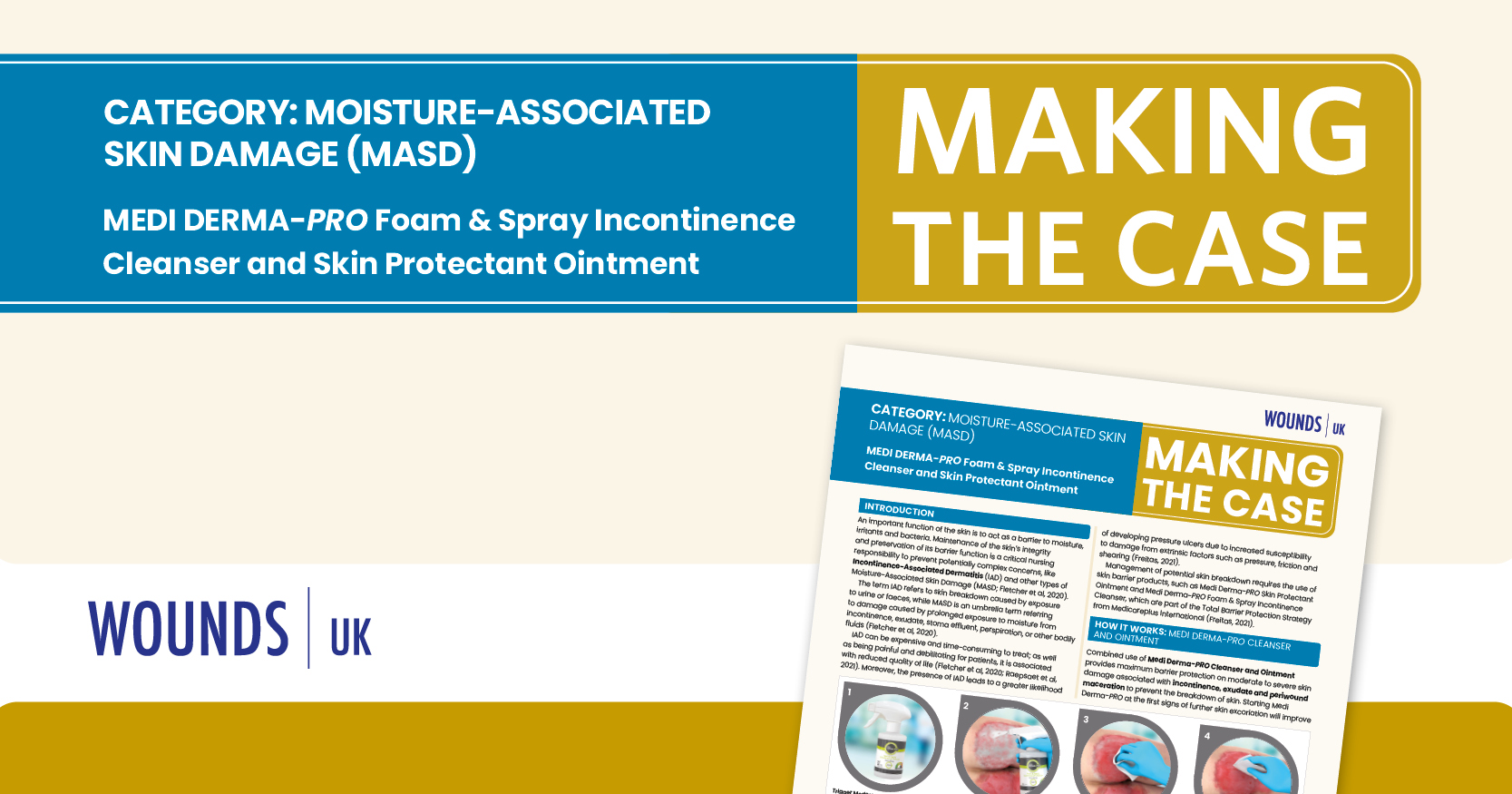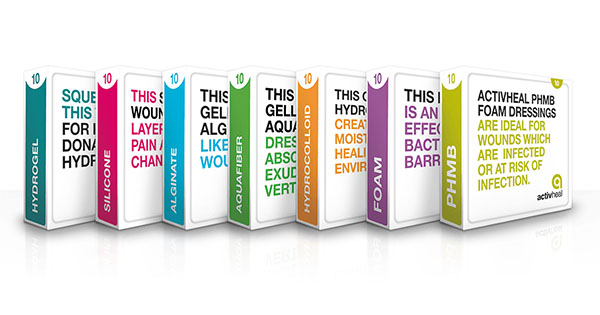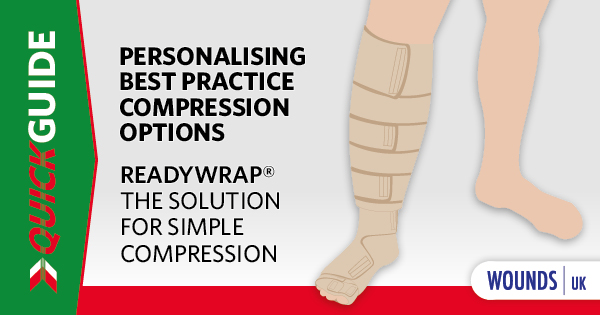Managing exudate still presents a key challenge in clinical practice. Unmanaged exudate can delay healing, increase the risk of wound complications, and damage the surrounding skin. This can have a significant impact on healing time, cost and patients’ quality of life (WUWHS, 2019), with some patients reporting odour and exudate as the most disturbing consequences of having a chronic wound (Jones, 2008). The prevalence of exudate-related damage is not well documented, but it is acknowledged that its impact is ‘substantial’, both on individuals and healthcare systems (Woo et al, 2017). One largescale international survey involving 2,018 patients with chronic wounds found that 25% of respondents experienced pain around the wound, likely from periwound maceration and local inflammatory responses (Price et al, 2008). Periwound maceration from unmanaged exudate delays overall wound healing, and is also correlated with higher pain levels prior to and during dressing changes (Woo et al, 2017).
Supported by Advancis Medical

